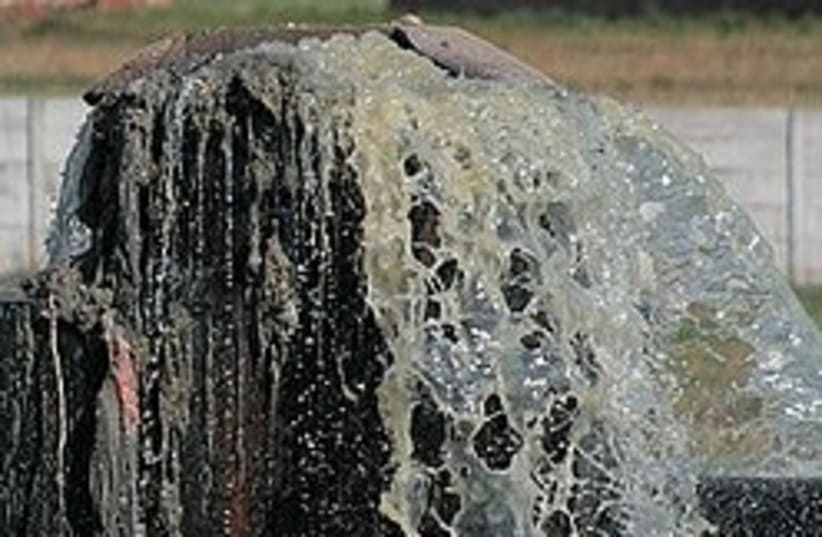The Knesset Internal Affairs and EnvironmentCommittee approved regulations for treating waste water on Monday,after a 10-year process.
Theregulations will put in place 37 parameters for treating waste water,as opposed to the two that exist today, the Environmental ProtectionMinistry said.
Regulating treated sewage protects both the land and the water from contamination as well as residents' health.
The process began with the recommendations of theinterministerial Inbar Committee, headed by Environmental ProtectionMinistry director-general Yossi Inbar long before he took up hiscurrent post. The regulations were then formulated and proposed by thehealth minister and the environmental protection minister and submittedto the Knesset panel.
Treated sewage water is an integral part of thecountry's water conservation policy. Seventy-five percent of sewagewater is recycled - by far the highest percentage of any country.
The new regulations will go into effect for treated sewagewater dumped into streams in five years and for agriculture in threeyears. The Knesset committee adopted the expedited schedule at therequest of joint Knesset Health and Environment Committee head DovHenin (Hadash) and waterways watchdog NGO Zalul. The original draftallowed twice as long for the regulations to take hold.
Underthe new regulations, water treatment plants will have to adhere to thefar more stringent conditions, prepare detailed supervision plans, takesamples and publish the results. There is also a transparencycomponent, in an attempt to make all of the information available tothe public, the ministry said.
The ministry will have six months to extend the regulations tothe effluence from fish ponds, the committee decided in response to arequest from Zalul.
Both Henin and Zalul described the approval of the regulations as a "historic day" for the environment in Israel.
